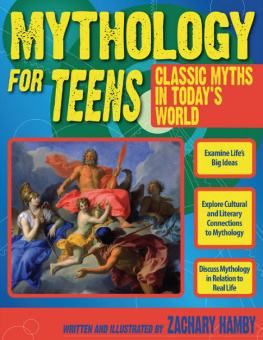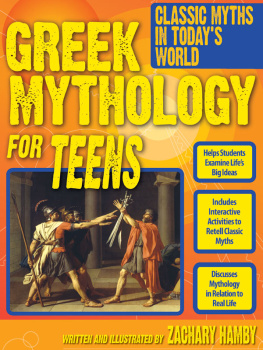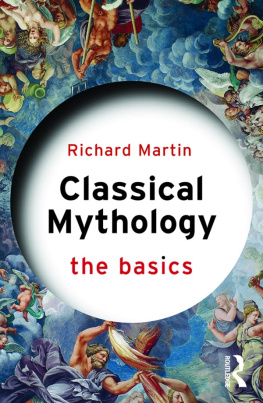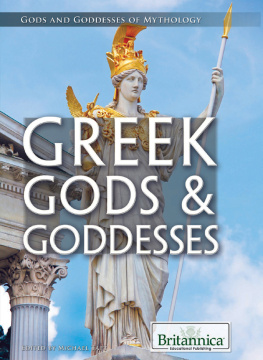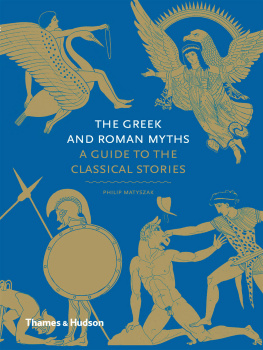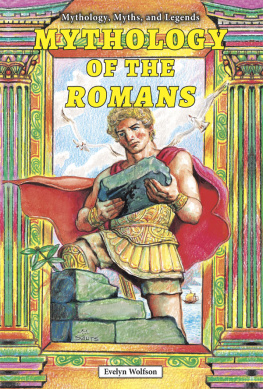Ruth K. Westheimer - Myths of Love: Echoes of Greek and Roman Mythology in the Modern Romantic Imagination
Here you can read online Ruth K. Westheimer - Myths of Love: Echoes of Greek and Roman Mythology in the Modern Romantic Imagination full text of the book (entire story) in english for free. Download pdf and epub, get meaning, cover and reviews about this ebook. year: 2014, publisher: Quill Driver Books, genre: Romance novel. Description of the work, (preface) as well as reviews are available. Best literature library LitArk.com created for fans of good reading and offers a wide selection of genres:
Romance novel
Science fiction
Adventure
Detective
Science
History
Home and family
Prose
Art
Politics
Computer
Non-fiction
Religion
Business
Children
Humor
Choose a favorite category and find really read worthwhile books. Enjoy immersion in the world of imagination, feel the emotions of the characters or learn something new for yourself, make an fascinating discovery.

- Book:Myths of Love: Echoes of Greek and Roman Mythology in the Modern Romantic Imagination
- Author:
- Publisher:Quill Driver Books
- Genre:
- Year:2014
- Rating:3 / 5
- Favourites:Add to favourites
- Your mark:
Myths of Love: Echoes of Greek and Roman Mythology in the Modern Romantic Imagination: summary, description and annotation
We offer to read an annotation, description, summary or preface (depends on what the author of the book "Myths of Love: Echoes of Greek and Roman Mythology in the Modern Romantic Imagination" wrote himself). If you haven't found the necessary information about the book — write in the comments, we will try to find it.
Dr. Ruth Westheimer, Americas favorite sex therapist, analyzes ancient myth and its relevance to 21st century relationships in her new book Myths of Love: Echoes of Greek and Roman Mythology in the Modern Romantic Imagination. From humanitys earliest beginnings, people have puzzled over the dual nature of love. For the ancient Greeks and Romans, love was sweet, but it was also irrational, cruel, and often deadly. Faced with the terrible paradox of love, classical civilization produced some of the most psychologically insightful myths of all time--stories of classic archetypes such as Narcissus, Helen of Troy, and Venus and Adonis.
Dr. Ruth and classical scholar Jerome E. Singerman insightfully examine the underlying psychology of the ancient myths and explain why their universal appeal has shaped the imagination of Western civilization for millennia. Myths of Love traces how these myths of endured in literature and art across the centuries and how they still influence how we think about sex and relationships today.
Surveying a vast range of Greek and Roman literature from Homer to Ovid, Myths of Love retells and reconsiders the full gamut of human sexual experience, from the tenderest expressions of married love to the savage, self-destructive passions of narcissism on jealousy. Bridging high culture and pop culture, Myths of Love reveals the secret connections between classic literature and todays popular novels and films.
A stimulating blend of art, science, ancient religion, and the passions and contradictions of the human heart, Myths of Love is a smart and sexy revisit to the roots of Western cultures eternal fascination with love.
Ruth K. Westheimer: author's other books
Who wrote Myths of Love: Echoes of Greek and Roman Mythology in the Modern Romantic Imagination? Find out the surname, the name of the author of the book and a list of all author's works by series.




